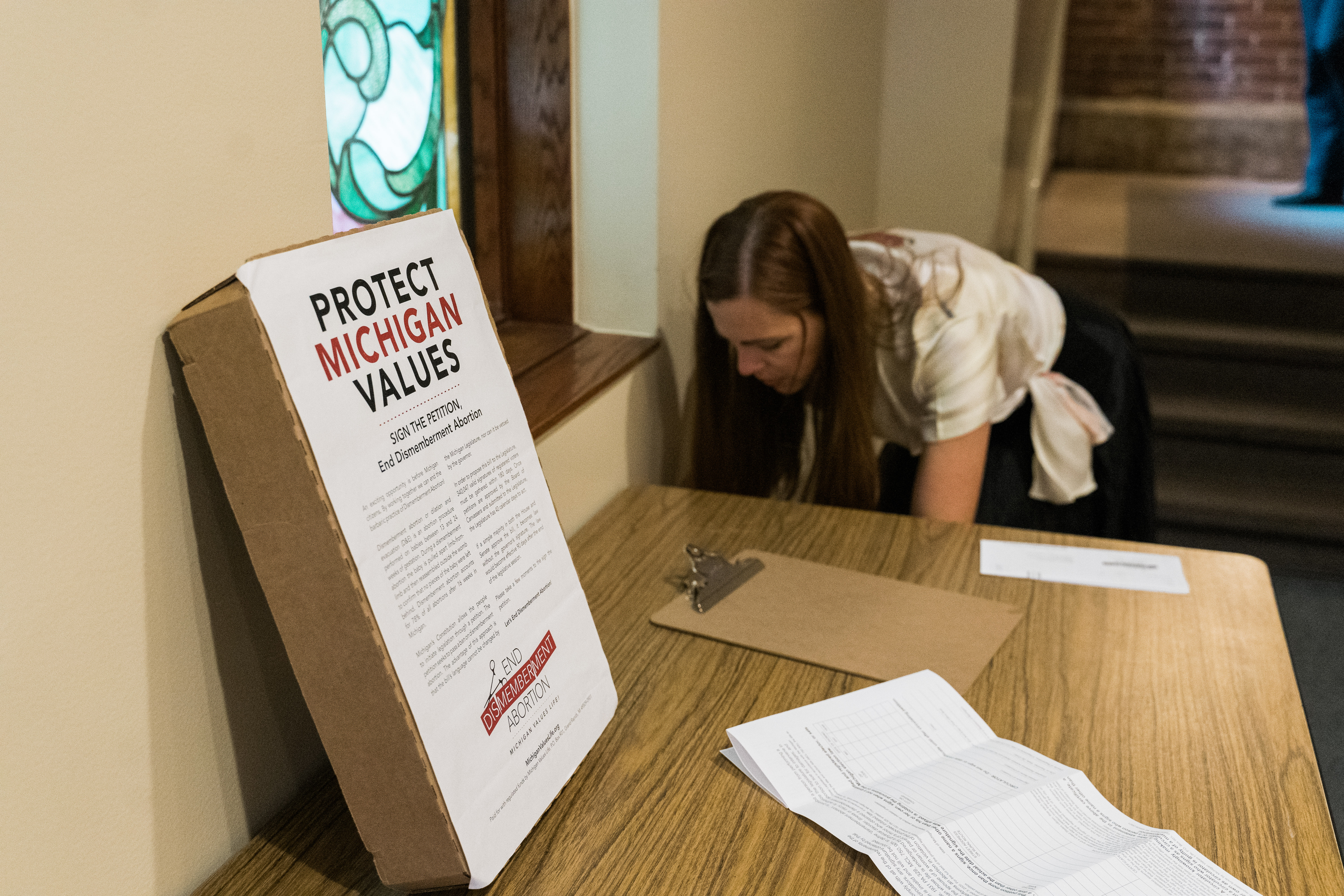The difficult work of improving communities through the policy process is oftentimes gradual. With patience and persistence, advocacy efforts produce results for the people of Michigan. As the biannual legislative session has reached its halfway mark, the Michigan Catholic Conference (MCC) celebrates several positive changes made during the 2019 calendar year.
One highlight that deserves broader attention includes adoption of “Raise the Age” legislation. This new law changes the previous requirement that all 17-year-olds be charged automatically as adults in the criminal justice system, regardless of the severity of the crime. The amended law now allows for a judge to use his or her discretion based on the nature of the offense.
Many youths who commit low-level crimes will now receive age-appropriate services intended to counteract criminal activity, while still requiring them to take responsibility for their actions. The measures demonstrate a strong dedication to juvenile justice reform, which has been a focus of the MCC and a wide range of organizations during the last three legislative sessions. The conference especially appreciates the cooperation that led to policy change, especially under the bipartisan leadership of Sens. Pete Lucido (R-Shelby Township) and Sylvia Santana (D-Detroit) and Reps. Graham Filler (R-Ovid) and David LaGrand (D-Grand Rapids).
Toward the end of the year, on Dec. 23, the MCC and other pro-life groups delivered a Christmas gift to the unborn: 379,418 petitions signatures, each aimed at ending dismemberment abortion in the state. Dismemberment abortion is a particularly brutal procedure that involves taking apart the unborn child limb-by-limb in the womb. After the Michigan Board of State Canvassers verifies the petition signatures, the citizen’s-initiated legislation will continue forward to the Michigan Legislature and can become law without the governor’s signature. That detail is crucial as Gov. Gretchen Whitmer — a strong advocate of unrestricted abortion — has indicated she would veto any pro-life legislation sent to her desk.
The Catholic community played a significant role in the success of the petition drive, organizing sign-up weekends, hosting trainings and informational events, and gathering signatures. The MCC is grateful for these efforts and is optimistic about the Legislature’s intent to approve the measure.
The first half of the 2019-20 legislative session had additional successes. A widely supported bill by Sen. Jim Runestad (R-White Lake) — now Public Act 177 of 2019 — established the Suicide Prevention Commission. The commission will research causes of suicide and offer recommendations for addressing risk factors. Regrettably, suicide rates spiked 33 percent from 1999 to 2016. The MCC advocated for the policy in order to improve support for people in need and to affirm that every life is valuable. It is the MCC’s hope that the commission’s work will be helpful toward saving lives.
Additionally, through public testimony, op/eds, action alerts, news releases and the MCC’s FOCUS publication, the conference brought awareness to critical issues facing Michigan communities such as access to clean water, restoration of tax credits for the working poor, the need for protections against payday lending, and the importance of Catholic agencies in foster care and adoption placements. Each action sought the common good for all Michiganders and served as an example of lived Catholic social teaching in the world.
The challenging work of advocacy in the public policy process continues into the new year, as last year Gov. Whitmer vetoed budget items that were critical to protecting women and to funding non-education-related services for nonpublic schools. These include Michigan’s Pregnancy and Parenting Support Services Program, which provides assistance for women facing unplanned or crisis pregnancies and their children; grant funding for school safety improvements and First Robotics programs in nonpublic schools; and mandate reimbursements to protect the health, safety and welfare of nonpublic school students in Michigan.
The MCC will continue to pursue policies and proposals that defend the most vulnerable in society and provide access to basic needs such as food, health care and education. Patience and persistence are needed again in this new year, along with the unified voice of Catholics, to highlight important issues facing the state.
Interested in helping MCC advocate for positive change in 2020? Visit www.micatholic.org/can to learn more.
The Word from Lansing is a regular column for Catholic news outlets and is written by Michigan Catholic Conference (MCC) president and CEO Paul A. Long. Michigan Catholic Conference is the official public policy voice of the Catholic Church in this state.









